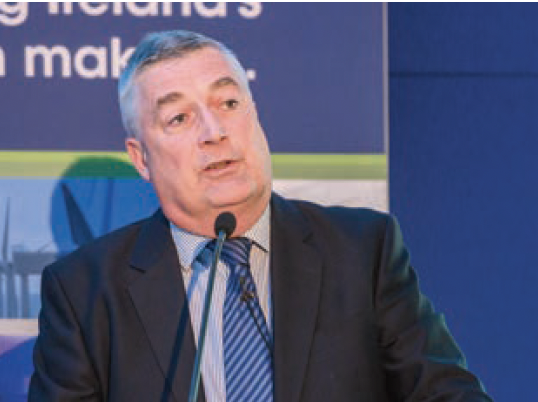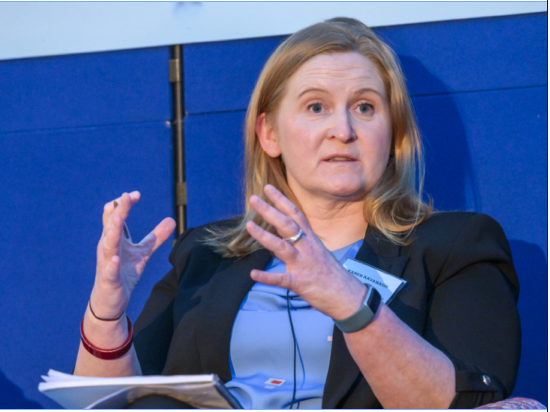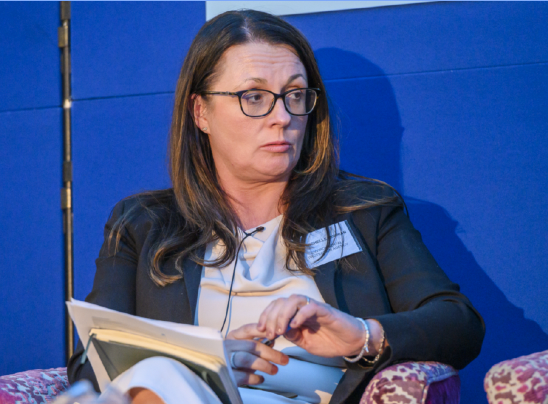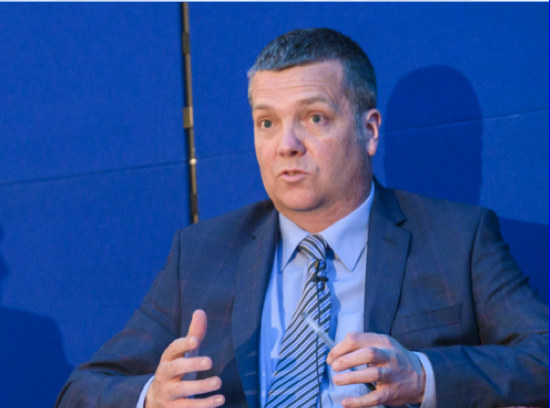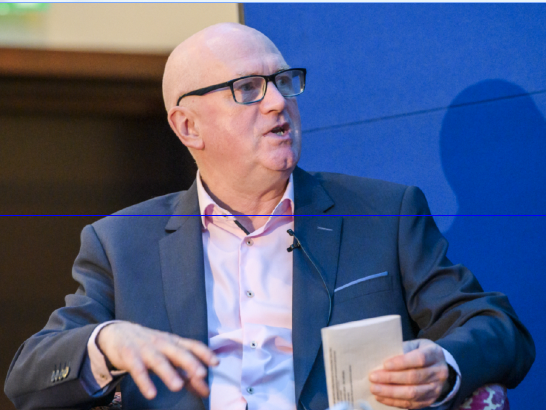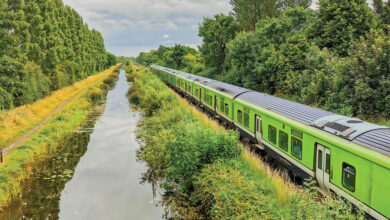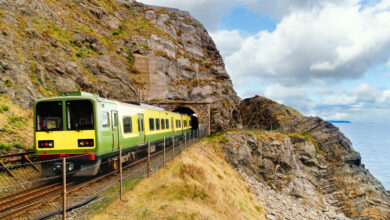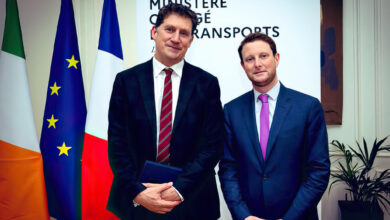Ireland’s water and wastewater future
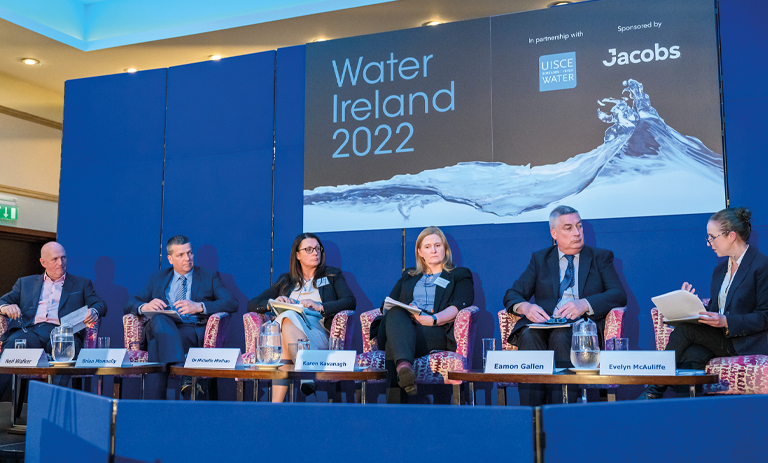
Key stakeholders in Ireland’s water and wastewater future discuss some of the future challenges and opportunities across the sector.
What is the biggest challenge facing the water sector at present, from your organisation’s perspective?
Neil Walker: The planning, appeals and consent systems are not fit for purpose; it takes far too long to get through and it is far too easy for people who want to block it to do so. More than anything else, we are trying to undo 100 years of underinvestment. The amount of investment that Irish Water requires is going to double. In a regime where contractors are worried about rising prices it is difficult enough. Where a project can be in years in delay before you can even go out to procurement, it is imposing huge costs.
Brían Munnelly: One of the biggest and immediate issues is inflation and the impact on the delivery of capital programmes. Another area would be the compliance versus economic development dichotomy whereby the level of underinvestment and the fragmented nature of the water service over a long number of years has left us in a serious compliance deficit. The challenge is that we cannot have economic development at the expense of compliance.
Michelle Minihan: There are a couple of big challenges right now facing the water services sector. Firstly, there is the delivery of improvements to ensure drinking water quality is protected. The EPA has a remedial action list. We have highlighted those in our annual reports and how those improvements must be delivered. There is a similar priority action list for wastewater compliance. The second thing I would point to is the need for resilience. It is really important that, whether from climate impact or water quantity perspective, we need resilient water supplies that are not vulnerable to interruptions, that are not vulnerable to boil water notices or water restrictions. Overall, I think they can meet the challenges ahead.
Karen Kavanagh: The implementation of the delivery of the capital investment plan is the key thing that will deliver benefits to customers in terms of improved water quality, reducing boil water notices and reducing the amount of raw sewage. The overall expenditure envelope for the current investment period was nearly €8 million when you include operational allowances, which is the biggest revenue control that the CRU has ever approved in its almost 20 years of regulation. The scale and complexity of the challenge is huge, including ensuring that Irish Water continues to grow and develop as an organisation to deliver that capacity.
Eamon Gallen: I think Irish Water has come an awful long way since being established, but that does not mean we can get complacent. On one hand, we want to get things done and, on the other hand, we must ensure good procurement practices and competition in the market, as well as growing a supply chain which will deliver a huge amount of investment over the next number of years. Those organisations which provide the investment want Irish Water to prove itself all the time, and rightly so. It is now about taking that to the next stage. It is a challenge, but I do not think it is an obstacle and, more importantly, it is a fantastic opportunity. We really have a chance now to transform the water sector in Ireland.
What are the challenges for large water users in business and manufacturing?
Neil Walker: I think there are two parts to this. For new users, whether they are a data centre or a factory, they will need energy, broadband, and water. Finding places where all three are available is difficult. There is going to be a period where it is very difficult to build houses in and around Dublin unless we can get more sustainable water supplies. Ibec is 100 per cent behind the water supply project, but it could take a decade and that is something we cannot afford. There will be a period where, if someone wants to build a large factory, it will have to be done somewhere outside of Dublin.
For existing users, it is a different question. They will have to be much more aware of water conservation because there is going to be a pattern of drier summers, and wetter winters. They will have to think about water scarcity and rising costs.
Brían Munnelly: It ties into the concerns around the environment and ensuring the ecoefficiency of using water. This can include reusing water and more general challenges in relation to the circular economy, so these are things which I would encourage.
Eamon Gallen: We will come to a point, between the next five and seven years, where water will be constrained in Dublin. It is hard to see the developments at the scale of which some people talk. We will also have one million extra people by 2040. Even in the short-term, we are looking at 200,000 people coming in from Ukraine. It will add a huge amount of demand, even though this will be spread throughout the country.
There are areas in the country where there is plenty of water, but unfortunately the water is in the west and the people are in the east. We need to find a way to maximise the benefits because we are not a water stressed country, but we do have places which are heading towards trouble and the GDA would be a prime example of that.
What are the challenges and opportunities that you see arising from the new Drinking Water Directive?
Michelle Minihan: The new directive will enter into force on 12 January 2023. There is an expert group tasked by the Department of Housing, Local Government and Heritage which is involved in determining how the Directive will be transposed.
We really need to be cognisant that limits are going to become more stringent, standards are going to become tighter, and drinking water quality will increase. So there are huge challenges ahead, potentially for the addition of new substances that we are not monitoring for now.
We also have to look at how we are going to be tasked with leakage and put action plans in place around that. There is the risk assessment and risk management for the source, the catchment all the way through the treatment process system in the network.
Eamon Gallen: It is very hard to oppose increased water standards. Irish Water is in favour of improving the quality of the water we produce and the standard of the wastewater which we release back into the environment. Increasing standards bring associated costs and you can end up in another prioritisation discussion as to which one you tackle first or where you focus your investment. It will require a holistic approach and it will not be easy, but you cannot be against raising standards. It is the right thing to do.
|
Eamon Gallen is the Chief Operating Officer of |
Karen Kavanagh is the Director of Networks and Economic Regulation at the Commission for the Regulation of Utilities (CRU). |
|
Michelle Minihan is the Senior Inspector, Drinking Water, Office of Environmental Enforcement (OEE), Environmental Protection Agency (EPA). |
Brían Munnelly is the Principal Officer of the Water Division of the Department of Housing, Local Government and Heritage. |
|
Neil Walker is the Head of Infrastructure, Energy and Planning at Ibec, the largest representative organisation in Ireland. |

